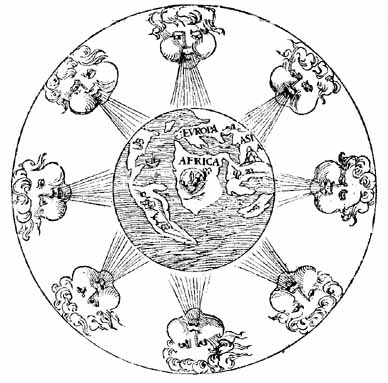CFP: "Annual Conference of the German Society for the History of Technology 2011" - Max Planck Institute for the History of Science, Berlin, 3-5 June 2011 - Deadline: Jan. 6, 2011
Invitation to the 20th Annual Conference of the “Gesellschaft für
Technikgeschichte” (Society for the History of Technology)
from 3-5 June 2011 at the Max Planck Institute for the History of Science in Berlin, Germany
The board of the “Gesellschaft für Technikgeschichte” invites applications for papers for the Annual Conference 2011 with the theme:
Globalisation, Cultural Comparison and Cultural Contact
as a challenge for the History of Technology
Technology enables and shapes globalization: this holds true for the discovery journeys of early modern times as well as for modern global communication technologies. Continuously affecting social, cultural, and political exchange processes, technology is, however, more than simply the basis of globalization. It creates identities and at the same time changes its own, taking on different complexions – this interpenetration is in the focus of the 2011 conference of the Gesellschaft für Technikgeschichte (GTG).
A historical analysis of globalization processes is only useful in the
context of general issues on cultural exchange among defined cultural entities. The history of technology has a long tradition of research on transfer and circulation processes between and within regions such as Europe, Asia, the Near East, and Africa or political actors such as the US and Europe. In which way can the results of this research be integrated in actual debates on global history and how can the current discourse on a new global history be fruitfully effectuated for the history of technology?
The 2011 Annual Conference of the GTG is dedicated to the thematic and methodological challenges that globalization presents to the history of technology. Contributions on issues of globalization, cultural comparison, and cultural contact will serve to define the current state of the discipline and contribute to the formulation of future research agendas.
Papers from different historical disciplines are welcome, as are those dealing with different historical epochs.
Fields of interest and suggested enquiries include:
• The role of technology in the “production” of globalization, in
particular by new communication and transportation technologies. The historical location, extent and speed of such processes.
• Historical examples of transnational exchange of technologies
between different cultural entities: the agents of such initiatives, the hopes invested, the reasons for “success” or “failure”; the interaction of such initiatives with indigenous technologies. Changes in the processes of invention, production and consumption compared to the place of origin; continued existence of technologies obsolete in the “first world”. Effect of such processes on the initiators. Knowledge systems, institutional and
cultural frameworks relevant for such exchange processes
• Historical examples of the birth and growth of technologies that,
particularly in the premodern period, differ from “western” forms of
technological development.
• Exchange and competition between nations or cultures as the
background for technology becoming part of cultural and national identities - or for setting forth critical discourses on technology of a general or specific nature.
• Chronology and forms of the dissolving of “national” technologies in the context of globalization. To what extent is technology, nevertheless, still defined locally and how is technological innovation positioned within regional contexts? In the more recent past, can such developments be seen as an explicit counter-reaction to globalization? Attitudes of different
organizations and institutions in trade, industry, and technical education towards such developments.
• Studies on technology transfer and concepts such as “technological style” as starting points for the study of global connections in the History of Technology. Adaptability of concepts currently debated in historical research such as “transnational history”, “histoire croisée”, “integration vs. transfer”. Methodological implications of the global perspective for
“classic” categories such as theory and practice, indigenous and universal, technology and science, adaptation and copy, repair and re-engineering.
• Didactic approaches for the topics mentioned above to university
teaching, museum exhibitions, or popular science. Role of new media (visualizations, GIS tools, web 2.0) for their inclusion in historical research, teaching and popularization.
The main conference language is German, though selected papers in English will be accepted. Please note that travel expenses cannot be refunded.
Abstracts for contributions (max. 350–400 words) and a short, one-page CV are requested by January 6, 2011. Please send these to:
PD Dr. Dagmar Schäfer dschaefer@mpiwg-berlin.mpg.de; Gina Grzimek, ggrzimek@mpiwg-berlin.mpg.de
For further information please contact:
Dagmar Schäfer, Max Planck Institute for the History of Science, Berlin, Head of the Independent research Group “Concepts and Modalities: Practical Knowledge Transmission”) Tel. 030 22 667 313. Fax: 030 22 667 124
In addition and independent to the conference theme, the GTG is organizing a poster forum for younger scholars. The best presentations will be awarded.
Proposals for the poster competition will be accepted until 6 January 2011 by Dr. Stefan Krebs (s.krebs@tue.nl) who can also give more information about the procedure.

